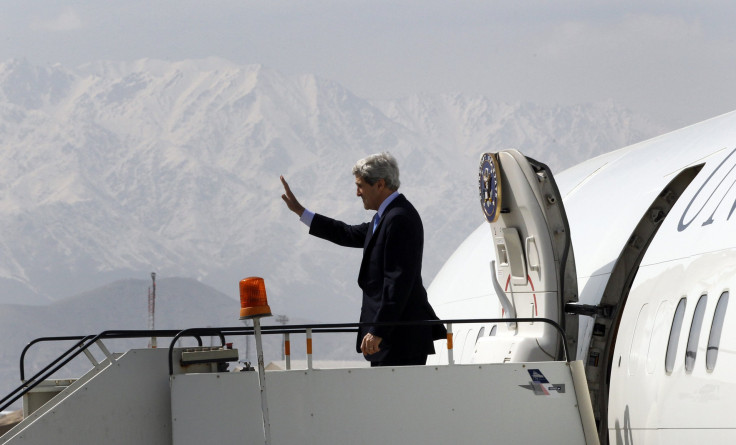John Kerry Attempting To Allay India's Concerns Over Proposed Taliban Talks Contradicts US Official Stance

In his first trip to India as secretary of state, John Kerry, attempted to ease tensions in the region over the U.S.' proposed “strategic talks” with the Taliban, and in the process, misstated the official U.S. stance on the matter, complicating an already muddled issue.
On Monday, Kerry assured India that Washington won't overlook New Delhi’s concerns over the proposed talks, and he said that any discussions with the Taliban would be held only if the insurgent group meets certain conditions set for the dialog, implying that the U.S.' role would be limited to that of a facilitator.
The conditions include asking the Taliban to shed violence and its links with al-Qaeda, respect Afghanistan’s constitution, and honor the rights of women and minority groups in the country.
“Thus far, those conditions have not yet been met, so there is no negotiation at this point,” Kerry said in the Washington Post. “If the conditions are met, then there is a negotiation that will take place -- not with the United States but with the High Peace Council of Afghanistan.”
This contradicts the official U.S. stance spelled out by the Obama government last week, which stated that the Taliban had met two of the three preconditions by renouncing international terrorism and recognizing democratic rule in Afghanistan, the Washington Post notes.
In contrast, an Associated Press report on Monday noted that the U.S. now maintains that these two conditions would be the outcome of the proposed talks -- a stance opposed by the governments of Afghanistan and India -- which strongly distrust the Taliban and its affiliated insurgent groups.
Kerry’s statement has further complicated a confused scenario as State Department officials said that “Kerry's remarks did not represent a change in U.S. policy,” according to AP's report.
The preparations to the proposed talks had a rocky start last week after the insurgent group opened a new office in Doha, the capital of Qatar, named it an office of the Islamic Emirate of Afghanistan -- the official name for Afghanistan during the Taliban regime -- and hoisted its flag there.
The incident caused outrage in President Hamid Karzai's government, which suspended discussions with the U.S. regarding troop withdrawals and said the insurgent group's actions undermine Afghanistan’s constitution and its government.
Although the plaque and the flag at the Taliban office in Doha have since been taken down, the Taliban maintains that it hasn't agreed to stop using them. Talks remain suspended as Taliban officials said they're waiting permission from the organization's political leadership based in Quetta, in northwestern Pakistan, to begin the dialog.
On Tuesday morning, in an attack in Kabul that the Taliban claimed responsibility for, insurgents attacked an area near the presidential palace, which the BBC reported was aimed at a CIA base believed to be housed in a nearby hotel.
© Copyright IBTimes 2025. All rights reserved.





















